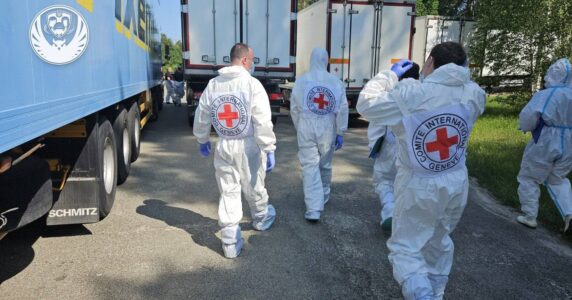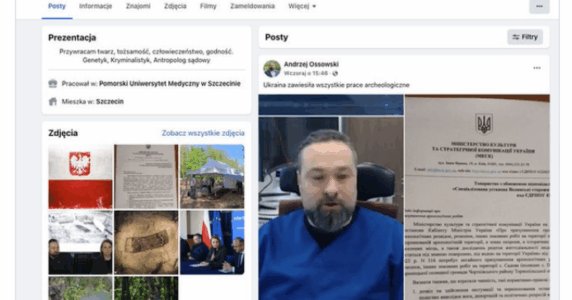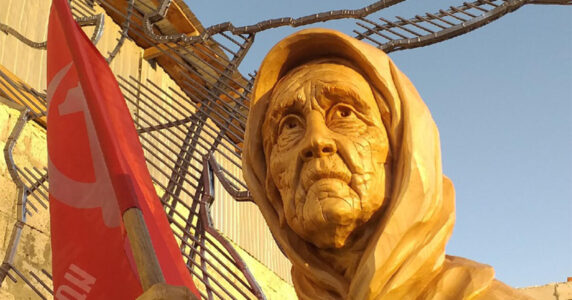Navigation and useful materials
A special characteristic of the Crimea media space is that a significant part of publications currently working to support Russia’s war propaganda were founded and operated even before 2014, doing nothing to hide their pro-Moscow nature.
Currently, the pro-Russian Crimean media outlets are actively reproducing the statements of Russian officials, talking about fictitious “war crimes of the Ukrainian army” and calling the upcoming liberation of the peninsula from Russian occupation “an attack by Ukraine on Crimea.”
The Centre for Strategic Communication and Information Security has analysed the publications in the Crimean pro-Kremlin media published in January 2023 using the Attack Index monitoring system. Here’s how pro-Kremlin media fight for support among the residents of the peninsula: by discrediting Ukraine and integrating the peninsula into Russia’s political and cultural context.
“War crimes” of the Ukrainian army and “successes” of the Russian army
Pro-Kremlin Crimean media actively promote news about the fictional “successes” of the Russian army and its supposed “strength” and “invincibility.”
In contrast to the message about fictitious “successes” of the Russian army, the Ukrainian army is accused of “war crimes” in propaganda media of Crimea. For instance, the Armed Forces of Ukraine are accused of “shelling civilians” in the temporarily occupied territories, and the publications highlight the numbers of the dead resulting from such attacks.
READ ALSO: “Peace” on Russian Terms as Goal of Kremlin Propaganda
In addition, the analysed materials contain the message about “Kyiv storing Western weapons in prohibited places.” For example, in January, Sergey Naryshkin, the director of the Foreign Intelligence Service of the Russian Federation, accused the Armed Forces of Ukraine of “storing weapons at the nuclear power plant.”
Adviser to the head of the OP Mykhailo Podoliak debunked this statement, saying that “Ukraine never stored any weapons at ‘nuclear power plants.’” In addition, Ukrainian nuclear power plants are always open to representatives of international inspections, in particular the IAEA.
It was actually Russia that captured Zaporizhzhia NPP and is keeping the military there, falsely accusing Ukraine to justify its provocations.
“Ukraine sets up provocations for Russia”
In addition to the “dishonesty” of the Ukrainian army, the propaganda media in Crimea accuse Ukraine of “staging war crimes by the Russian army” in order to “blame Russia.”
“Ukraine’s attack on Crimea”
Propaganda media call the liberation of Crimea from Russian occupation “Ukraine’s attack on Crimea” and share threats of Russian officials in the event of such actions.
Particularly interesting are publications attempting to integrate Crimea into Russia’s political and cultural space.
“Crimea residents help to bring the victory in the special military operation closer”
Another leading topic in the Crimean pro-Kremlin media is the role of Crimeans in helping to conduct the so-called “special military operation.” Stories about Crimea residents as “war heroes of the special military operations” are additionally promoted.
Media “integration” of Crimea in the Russian cultural context
Pro-Kremlin Crimean media actively promote Russian holidays such as “Russian Military Glory Day” and “historical anniversaries” that the Kremlin uses to promote its own narratives.
Attempts to “unite and put together” Crimea, “LPR/DPR” and other temporarily occupied territories of Ukraine
Crimean pro-Kremlin media also actively include the so-called “LPR/DPR” and territories of Ukraine temporarily occupied after the full-scale invasion into the agenda.
For example, they talk about “successful” examples of the development of medicine in Donbas for Crimea and the “new life” of Ukrainians after coming under Russian control.
Ukraine’s “Russophobic” policy
Ukraine’s policy against Russia is portrayed in the pro-Kremlin Crimean media not as Ukraine’s natural response to the military actions and crimes of the Russian Federation on the territory of Ukraine, but as “a Russophobic policy.”
This message is dangerous. It instils the idea that “Crimea residents will suffer if they return to Ukraine.” This way, it maintains a hostile attitude to Ukraine.
Thus, the analysis indicated that the absolute majority of Crimean media discourse publications are integrated into the Russian political and cultural space. The Kremlin is trying to sever any ties between Crimea and Ukraine, and it uses its traditional methods: violence, as well as outright lies and manipulation of its propaganda.
Centre for Strategic Communication and Information Security
If you have found a spelling error, please, notify us by selecting that text and pressing Ctrl+Enter.


